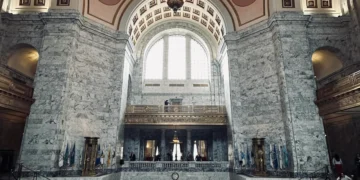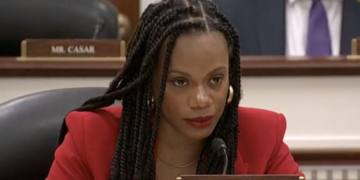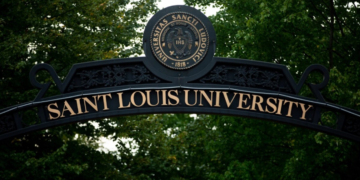March 5, 2025 Story by: Editor
Detroit’s Reparations Task Force is once again requesting an extension from the City Council to finalize policy recommendations aimed at addressing historical discrimination against Black residents.
Task force members Jeffery Robinson and Yolanda Jack shared minimal details on the specific recommendations being developed, noting that they are carefully wording proposals to avoid legal challenges that have hindered reparations efforts in other areas.
In January, the task force sent a letter to the City Council seeking to extend the deadline from March to June. The letter cited the importance of ensuring historical accuracy, critical awareness, and contemporary relevance in their work. The council has yet to decide on the extension request.
Evanston, Illinois, was the first U.S. city to implement reparations policies, including $25,000 payments to descendants of those impacted by past housing discrimination. However, a conservative legal group has challenged the program, arguing that it unlawfully discriminates against non-Black residents.
Robinson noted that the federal government appears poised to challenge programs benefiting specific racial groups, but he emphasized that reparations should not be equated with DEI initiatives.
He believes that Detroit’s reparations plan could withstand legal scrutiny due to its distinctive approach—the city is the only one to have established a reparations committee through a voter-approved ballot initiative.
“Now we have the federal government being the biggest opponent,” Robinson said. “We are trying to present recommendations that will hopefully have little legal scrutiny.”
Task force member Edythe Ford highlighted the key concerns raised by residents, including direct cash payments, increased affordable housing, business support, and a review of city policies to ensure equity.
Ford anticipates legal challenges against Detroit’s reparations plan.
“No matter what we do, they’re going to send us to court,” Ford said. “Detroit is one of the Blackest cities in this country. We’re going to court. But we’re ready because we’ve got young, brilliant Black lawyers that are going to be standing up for us and the people.”
The task force has sought legal guidance from various sources, including Evanston’s corporation counsel and attorney and activist Nkechi Taifa.
Members are still deliberating on eligibility criteria, which could be based on lineage rather than solely on race, linking applicants to Black Detroiters harmed by government policies.
“It might be easier to do it that way but the reality is, because there have been so many different harms, you can have a person harmed in some way and someone else (in your family) was affected by another type of harm,” Jack said. “We have to be very careful and not just make a blanket statement toward any requirement or eligibility. We have to be very sensitive and thoughtful.”
Robinson expressed a vision for a reparations program with sustainable, long-term funding.
City Council President Mary Sheffield commended the task force’s progress, despite early setbacks, including resignations and internal conflicts. Sheffield, who is running for mayor, has promoted the task force as a key achievement in her campaign.
“I know that things did not start at the pace and direction we all wanted, nevertheless we are here today and have a committed body of individuals serving Detroit,” she said.
During a public meeting, Roshaun Harris advocated for reparations policies that address “the legacy of environmental racism” in Black communities disproportionately affected by industrial pollution.
“We need to think about the structural violence that’s been enacted against Black communities here in Detroit, specifically in the realm of environmental justice,” Harris said. “Black communities are used as sacrifice zones. We see that in Southwest Detroit, with the health impacts happening to folks around the Marathon plant. Industrial zones all around the city have been impacting community members for decades and there’s no accident we have the highest incidence of asthma and COPD in the country.”
City retiree William Davis urged the council to push for reparations from the state of Michigan, arguing that Detroit’s “illegal” bankruptcy led to the loss of valuable assets, including the Detroit Institute of Arts (DIA), the water system, and Belle Isle.
Some residents contended that racial injustices continue today, comparing the city’s land acquisitions for solar farms to past displacement policies that resulted in the destruction of Black Bottom and Paradise Valley under a “slum clearance” initiative.
Source: Bridge Detroit

















